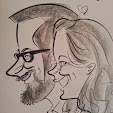Is there a negative psychological effect to fiction?
Ian McEwan's Atonement does a pretty good job of dealing with this issue. No amount of clever writing can change the difficulties of real life.
Stories exist as a medium, as a form, because they are notable. In order to be told, something must be worth telling. Good stories are hard to forget because they're notable - of interest.
That same feature so intrinsic to the definition of stories is what makes them so incongruous to reality. Because stories are notable, that means that similar things don't happen very much in reality. It's true that they happen - but usually only enough to be noticed, not enough to be counted on.
But what happens when our real lives consist mostly of us hearing, seeing, or reading stories? We're artificially injecting swashbuckling, heart-wrenching "notability" into our lives when it's not really there. While books are not being read as voraciously as late, fiction is well-represented in the many movies and TV shows that we watch. People's minds are constantly running through 30-minute story arcs, scenes of pre-constructed, zippy dialogue, and considering severe character development over the course of a two-hour movie.
Maybe we don't consider the possible bridges between our obsession with stories and our own reality because we consciously know that these stories are fiction. If we know it's not real, how could it possibly affect our own realities?
The problem is that we want them to be real. These stories are notable, remember - they're exciting, they're different, and there's a reason we watch/listen/read them in the first place. If we can find excuses to somehow incorporate the thrill or excitement of a fictional story into our own life, we are likely to do so. Even if we are not watching movies or TV shows all day, the ideas of popular narrative still follow us around. Movie quotes, anyone?
When I find myself frustrated with someone or something, I find myself constructing a heated, back-and-forth scene of dialogue in my head. I imagine that the full drama of my emotions will best be resolved the way they are in stories - in these smashmouth verbal interactions where every line is a carefully crafted zinger that heightens the stakes. When there is a slight possibility of danger in some situation, I imagine the most dramatic, heroic way that I might react. When someone is angry with me, I imagine their anger to be like that of hate-filled antagonists from action movies. When you see anything in your relationships to be like those of fictional relationships, it's easy to assume that they'll turn out the same. Some of this is very subconscious, but pay attention to how you view your reality based on the stories you've seen/heard/read.
What is the problem with this?
While stories are reflections on real life, and are at least inspired by ideas of real life even in the cases of fantasy and science fiction, they are not just passive reflections. Their narrative commentary, because of its high concentration in our society, turns and affects reality.
Fictional characters such as Mickey Mouse, Superman and Santa Claus are better known and hold more sway in popular culture and conversation than actual people with real positions of power, such as your state's Senators.
Obviously, I'm a big fan of the reading and writing of stories, and I have a lot of thoughts as to why human peoples have always liked telling them, and why we should. Maybe that's a post for another day. But is there a point of diminishing returns when it comes to stories? A point where reading another novel, watching another movie or following another TV show just screws with your life?
Subscribe to:
Post Comments (Atom)

No comments:
Post a Comment